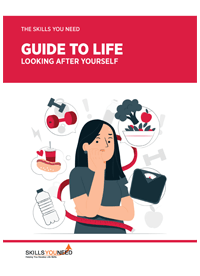9 Ways to Overcome Your Phobias
See also: Positive ThinkingWhether it is public speaking or heights, most of us have some fears that we just cannot rationalise.
Slight fears or worries about situations are natural, however for some these fears can become phobias that have the power to severely impact areas of their life.
Phobias can have a troubling impact on an individual’s health and wellbeing, causing stress and anxiety levels to rise and, in the most severe cases, prevent an individual from carrying out usual day-to-day activities. Therefore, finding coping mechanisms and techniques to overcome a phobia is extremely important.
This new infographic from Unum explores just this, identifying a variety of methods that can be used to overcome a phobia for good and get back control.

Many of the suggested techniques can be undertaken alone and with limited resources, such as reading self-help books, using online programmes and downloading apps. Many of these tools are based on the principles of Cognitive Behaviour Therapy (CBT), which helps individuals change their thought patterns and develop the skills needed to tackle issues such as worry and fear.
Alternative methods take a more direct approach, such as flooded or gradual exposure, which sees the individual come face to face with their fear either all at once or gradually over a period of time. The thinking behind these types of approaches is that the individual will come to realise that, while the experience might not be entirely pleasant, it isn’t harmful or dangerous.
Support can be key to overcoming problems in life, and phobias are no different. Some of us require more support than others, and asking for help is a huge step in the right direction. Joining a support group can be a great way to discuss your issues with like-minded individuals, and can help you realise you’re not alone. For many people, talking to ‘strangers’ about their issues can be a cathartic and helpful experience. That said, your loved ones can be the best support system, and asking them to accompany you in stressful situations or environments that may trigger your phobia can be a great help. For example, having a friend or family member in the audience when giving a presentation or talk can be some comfort until you feel confident enough to go it alone.
Learning relaxation techniques can be beneficial for any stressful situation, as they can help you deal with the more physical aspects of fear or panic. Learning deep breathing techniques or muscle relaxation can ease shallow breathing, a racing heart and other physical symptoms of fear. Taking a few minutes to refocus your breathing when you feel worried, stressed or panicked can help you come back to the present moment and dismiss some of the anxious thoughts you are feeling.
Alternatively, hypnotherapy from a certified practitioner can be an interesting treatment for phobias. The hypnotherapist can often help individuals identify the root of the phobia, which can then help them learn to manage and deal with the issue more calmly. The therapy also has the potential to help individuals to form new habits, such as the trick of imagining the audience of a presentation or speech in their underwear.
Ultimately, there is a wide range of tried and tested techniques to overcome phobias and the feelings and physical reactions they can cause. Getting help or treatment, or teaching yourself ways to deal with a phobia is vital, and is the first step to overcoming the issue altogether. Having the cloud of a phobia hanging over you can be stressful, so learning to deal with it and opening your life up to a range of new possibilities can be freeing.
Further Reading from Skills You Need
The Skills You Need Guide to Life: Looking After Yourself
Based on some of our most popular content, this eBook will help you to live a happier, healthier and more productive life.
Learn how to look after your body and mind: the fundamental first steps to personal development.
This eBook, now in its third edition, with new and revised content, is designed to make life both easier and better.
About the Author
Will Bridges is an HR Consultant at Unum, a leading employee benefits provider. Unum's products help protect millions of working people and their families in the event of an illness or injury.


